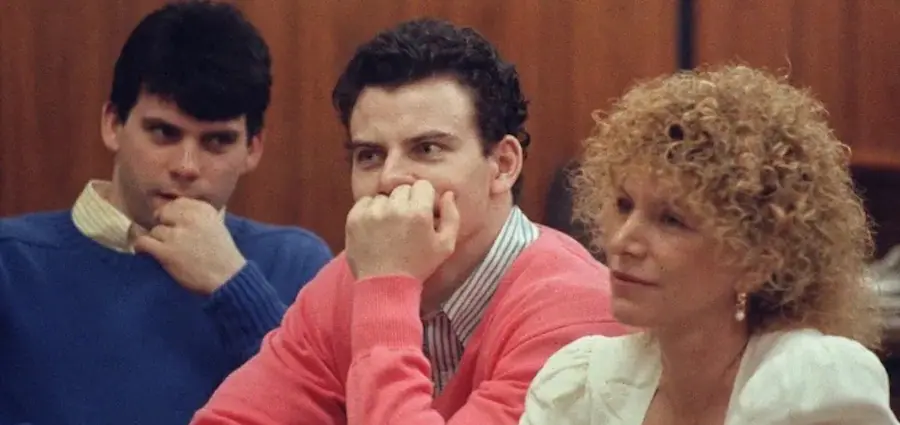Leslie Abramson, an iconic figure in the American legal landscape, gained national recognition for her role as the defense attorney for Erik Menendez in one of the most notorious murder trials of the 1990s. Known for her aggressive courtroom demeanor, emotional advocacy, and unwavering dedication to her clients, Abramson’s career reflects a deep commitment to defending those accused of heinous crimes, often involving violence or murder. Her work, particularly on the Menendez case, cemented her reputation as one of the most formidable criminal defense attorneys in the country.
Born on October 6, 1943, in Queens, New York, Leslie Abramson’s path to becoming a legal powerhouse began with her education at Queens College, followed by a law degree from UCLA School of Law in 1969. Like many aspiring attorneys of the time, Abramson initially worked as a public defender, a role that allowed her to hone her skills in the courtroom while representing indigent clients. It was during these formative years that she developed a reputation for taking on tough cases, often involving violent crimes.
In the early 1980s, Abramson transitioned into private practice, where her prowess as a defense attorney began to gain wider recognition. She had a unique ability to humanize her clients in the eyes of juries, often portraying them as individuals trapped in desperate circumstances. Her no-nonsense demeanor, paired with a fierce advocacy style, helped her stand out in a field dominated by less confrontational approaches.
Abramson’s career-defining moment came in 1993 when she was hired to defend Erik Menendez, one of the two brothers accused of murdering their wealthy parents, José and Kitty Menendez. The brutal killings, which occurred in the family’s Beverly Hills mansion in 1989, shocked the nation. The Menendez brothers, raised in privilege, were accused of killing their parents in cold blood, allegedly motivated by a desire to inherit the family fortune. However, the defense, led by Abramson, painted a drastically different picture.
Abramson’s strategy centered on the argument that Erik and Lyle Menendez were victims of years of abuse at the hands of their parents. She claimed that the brothers had endured relentless physical, emotional, and sexual abuse, which ultimately drove them to commit the murders out of fear and desperation. The emotional weight of this argument resonated with many, as Abramson’s cross-examinations and closing arguments were filled with impassioned appeals to the jury, urging them to see the brothers not as killers, but as tragic figures pushed to the brink.
Her efforts in the first trial led to a hung jury in 1994, with jurors divided on whether the killings were justified. However, in the retrial in 1996, both Erik and Lyle Menendez were convicted of first-degree murder and sentenced to life without the possibility of parole. Despite the conviction, Abramson’s defense was hailed as one of the most memorable in modern legal history, and the trial itself became a media sensation, capturing the nation’s attention for years.
Abramson’s aggressive defense tactics throughout the Menendez trial earned her both praise and criticism. She was unafraid to challenge prosecutors, witnesses, and even judges when necessary, pushing the boundaries of courtroom decorum in her pursuit of justice for her clients. This relentless style made her a polarizing figure, with some lauding her dedication to her clients and others questioning her methods.
Her dedication to justice extended beyond the Menendez case. Over the years, Abramson took on numerous high-profile cases, often defending clients facing the death penalty. A staunch opponent of capital punishment, she was outspoken about the flaws in the criminal justice system, particularly in how it handles death penalty cases. Abramson frequently criticized the system for its inequities and its treatment of those without the financial means to mount a proper defense.
Though the Menendez trial remains her most famous case, Abramson continued to work on complex and emotionally charged cases throughout her career. By the 2000s, she had largely stepped back from the national spotlight but remained a revered figure in the legal community. Her contributions to the field of criminal defense, particularly in cases involving the death penalty, are significant, and her legacy as a fierce advocate for her clients is firmly established.
Leslie Abramson’s role in the Menendez trial is set to receive renewed attention with the upcoming Netflix series, *Monsters: The Lyle and Erik Menendez Story.* Part of Ryan Murphy’s acclaimed *Monsters* anthology, the series will revisit the chilling murders and the subsequent legal battle that captivated the nation. Abramson, portrayed as a key figure in the trial, will once again take center stage, as her passionate defense of Erik Menendez is highlighted. The series is expected to provide new insights into the case and Abramson’s role, bringing her compelling advocacy to a new generation of viewers.
Leslie Abramson’s career stands as a testament to the power of dedicated legal representation, even in the face of overwhelming public scrutiny. Her ability to craft emotional and compelling defenses for clients accused of heinous crimes, particularly in the Menendez trial, ensured her place in legal history. While her methods may have drawn criticism, there is no doubt that Abramson’s commitment to her clients and her passion for justice left an indelible mark on the American legal system. As her story is revisited through popular media, her legacy as one of the most formidable criminal defense attorneys will continue to endure.
